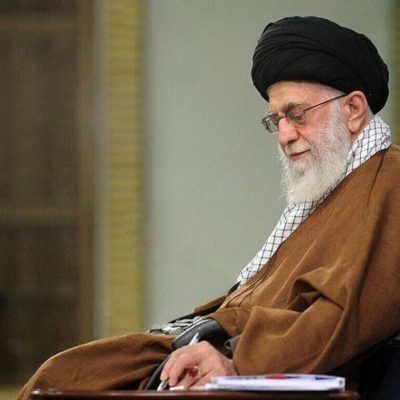The Pros and Cons of Biden Forcing Israel to End the War

The war between Israel and Hamas, the militant group that controls Gaza, has been raging since October 7, 2024, when Hamas launched a surprise attack on Israel with rockets and drones, killing dozens of civilians and soldiers. Israel responded with a massive aerial and ground assault on Gaza, targeting Hamas’s military and political infrastructure, as well as civilian areas. The war has claimed more than 2,000 lives, mostly Palestinians, and displaced more than half a million people, mostly Gazans.
The United States, Israel’s closest ally and main arms supplier, has been trying to broker a ceasefire and a diplomatic solution to the conflict, but has faced resistance and criticism from both sides. Israel has insisted on continuing its military operation until it achieves its objectives of destroying Hamas’s capabilities and deterring future attacks. Hamas has demanded an end to the Israeli blockade and siege of Gaza, and the recognition of its rights and interests in Jerusalem and the West Bank.
President Joe Biden, who took office in January 2021, has expressed his support for Israel’s right to self-defense, but has also urged Israel to de-escalate and limit the civilian casualties and damage. Biden has also reaffirmed his commitment to a two-state solution and a peaceful resolution of the Israeli-Palestinian conflict, which has been stalled for years.
Forcing
Biden’s forcing of Israel to end the war is a hypothetical scenario that some analysts and commentators have proposed or speculated, based on the assumption that the US has the leverage and the will to pressure and persuade Israel to accept a ceasefire and a negotiation. The forcing could involve various measures and actions, such as:
Withholding or suspending the military aid and assistance that the US provides to Israel, which amounts to about $3.8 billion per year, and which includes advanced weapons and systems, such as the Iron Dome missile defense system, the F-35 fighter jets, and the precision-guided munitions.
Imposing or threatening sanctions or penalties on Israel, such as freezing its assets, restricting its trade, or limiting its diplomatic relations, if it continues or escalates its attacks on Gaza, or if it violates the international humanitarian law or the human rights of the Palestinians.
Supporting or initiating resolutions or actions at the United Nations or other international forums or organizations, such as the Security Council, the General Assembly, or the International Criminal Court, that condemn or censure Israel for its conduct of the war, or that call for an investigation or an intervention in the situation.
Recognizing or endorsing the statehood or the sovereignty of Palestine, or the legitimacy or the authority of Hamas, or the claims or the demands of the Palestinians, such as the right of return, the status of Jerusalem, or the borders of the future state.
Keep Reading
Pros and Cons
Biden’s forcing of Israel to end the war could have various pros and cons, depending on the perspective and the outcome of the actors involved. Some of the possible pros and cons are:
Pros:
- The forcing could save lives and alleviate suffering, as it could stop the violence and the bloodshed, and allow the delivery of humanitarian aid and assistance to the affected people, especially in Gaza, where the situation is dire and desperate.
- The forcing could also create an opportunity for dialogue and diplomacy, as it could pave the way for a lasting and comprehensive peace agreement between Israel and Hamas, and between Israel and the Palestinians, based on mutual recognition and respect, and on the principles of international law and justice.
- The forcing could also enhance the reputation and the credibility of the US, as it could demonstrate its leadership and its responsibility in the region and in the world, and its commitment and its consistency to its values and its interests, such as democracy, human rights, and security.
Cons:
- The forcing could backfire and worsen the situation, as it could provoke and anger Israel, and make it more defiant and aggressive, or as it could embolden and empower Hamas, and make it more stubborn and radical, or as it could trigger and invite more violence and instability from other actors in the region, such as Iran, Hezbollah, or Islamic State.
- The forcing could also damage the relationship and the alliance between the US and Israel, as it could erode the trust and the cooperation between the two countries, and as it could alienate and antagonize the public and the political opinion in both countries, especially among the pro-Israel lobby and the evangelical Christians in the US, or among the right-wing and the nationalist parties and groups in Israel.
- The forcing could also undermine the influence and the role of the US, as it could isolate and marginalize the US from its other allies and partners in the region and in the world, or as it could reduce and weaken the US’s leverage and clout over the parties and the issues in the region and in the world.






